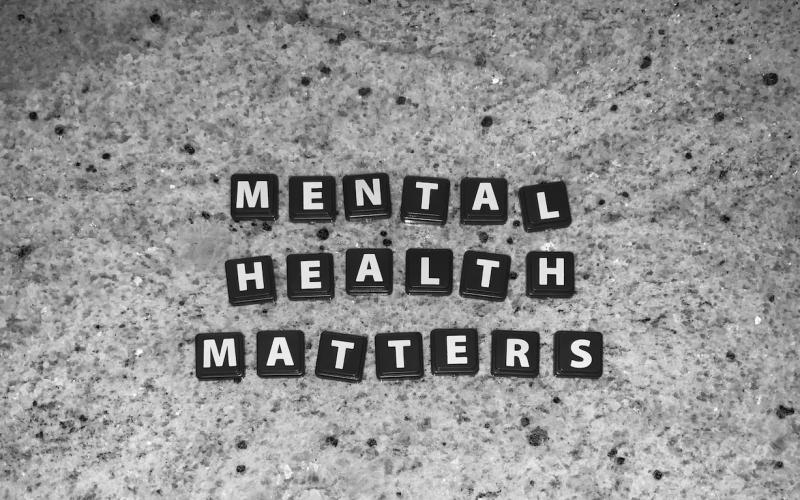4 Challenges of Treating Mental Health Patients

Treating mental health patients can be challenging, requiring a comprehensive understanding of mental health conditions and best practices in providing care.
Mental health patients are unique and can present with various symptoms and behaviors that can impact their daily lives. While mental health care has made significant advancements, there are still several obstacles that mental health professionals face in treating these patients effectively.
This article will discuss four major challenges in treating mental health patients, including access to care, stigma, lack of innovation, therapy resistance, and more. Understanding these challenges can help mental health professionals provide better care and improve the outcomes for their patients.
Social Stigma Around Mental Health
The social stigma surrounding mental health is a pervasive issue that can harm individuals struggling with mental health conditions. Stigma refers to negative attitudes, beliefs, and biases society holds towards people with mental health conditions. It can lead to discrimination, prejudice, and marginalization of people with mental health problems, making it harder for them to access help and support.
More than 50 percent of individuals will experience a mental health disorder, which could mean that any form of stigma against therapy means severe issues for the rest of their lives.
Lack Of Innovation In Treating Patients
The lack of innovation in treating mental health patients is a significant challenge that affects the quality and accessibility of care. Despite advances in technology and medicine, many mental health services still rely on outdated systems and processes that do not fully cover all the necessary procedures and effectively manage all patients.
It is particularly evident in the paperwork and administrative processes involved in mental health treatment. The current systems are often manual, time-consuming, and prone to errors, leading to delays, miscommunication, and a lower quality of care. This can also increase the workload for mental health professionals, leaving them with less time to focus on providing direct care to their patients.
To address this challenge, mental health services can consider employing mental health billing services that provide a single, easy-to-manage platform for managing all administrative tasks. These services can streamline the processes involved in scheduling appointments, managing patient records, and processing payments, allowing mental health professionals to focus on delivering high-quality care.
By investing in innovative solutions for managing administrative tasks, mental health services can improve the efficiency, accuracy, and accessibility of their care, leading to better patient outcomes.
Therapy Resistance
Therapy resistance is a common challenge that mental health professionals face when treating mental health patients. It refers to situations where a patient is reluctant or resistant to participate in therapy or engage with the treatment process. This can be due to various reasons, including a lack of understanding or trust in therapy, a negative therapy experience, or discomfort with the therapeutic process.
Therapy resistance can impede progress in treatment and make it harder for mental health professionals to provide effective care. When patients resist therapy, they may be less likely to attend appointments, engage in the therapeutic process, or change their behavior which can lead to improvement.
In a recent survey, 42 percent of mental health specialists say more than 50 percent of patients resisted seeking help through therapy for more than a year.
To address therapy resistance, mental health professionals must first understand the reasons behind a patient's resistance and work to address any underlying concerns or fears. This can involve building a strong therapeutic relationship, educating patients about therapy, and helping them understand the benefits and goals of treatment.
Access To Proper Care
One of the main barriers to access is a lack of resources, such as mental health clinics and therapists, in underserved communities. This can make it difficult for individuals to find help and support, particularly in rural or low-income areas. In addition, the cost of mental health care can also be prohibitive, with many people unable to afford the fees associated with therapy or medication.
Another significant barrier to access is stigma and discrimination surrounding mental health. Many people may feel ashamed or embarrassed to seek help for their mental health issues or fear being discriminated against if they do. This can prevent people from seeking care and lead to treatment delays, which can harm their recovery.
To address these challenges and improve access to care, it is important to increase resources and support for mental health, such as funding for mental health clinics and community-based services. Additionally, insurance policies should cover mental health treatment, and one should address mental health stigma through education and awareness-raising campaigns.
Conclusion
Treating mental health patients is a complex and challenging task that requires a multi-faceted approach. Mental health professionals face various challenges, including stigma, therapy resistance, lack of access to proper care, and co-occurring disorders. However, by working with patients and addressing these challenges, mental health professionals can help their patients recover and lead fulfilling, healthy lives.
To improve mental health treatment, the government must increase resources and support for mental health, address stigma and discrimination surrounding mental health, provide integrated and comprehensive care, and incorporate innovative treatment approaches.
More to Read:
Previous Posts:











